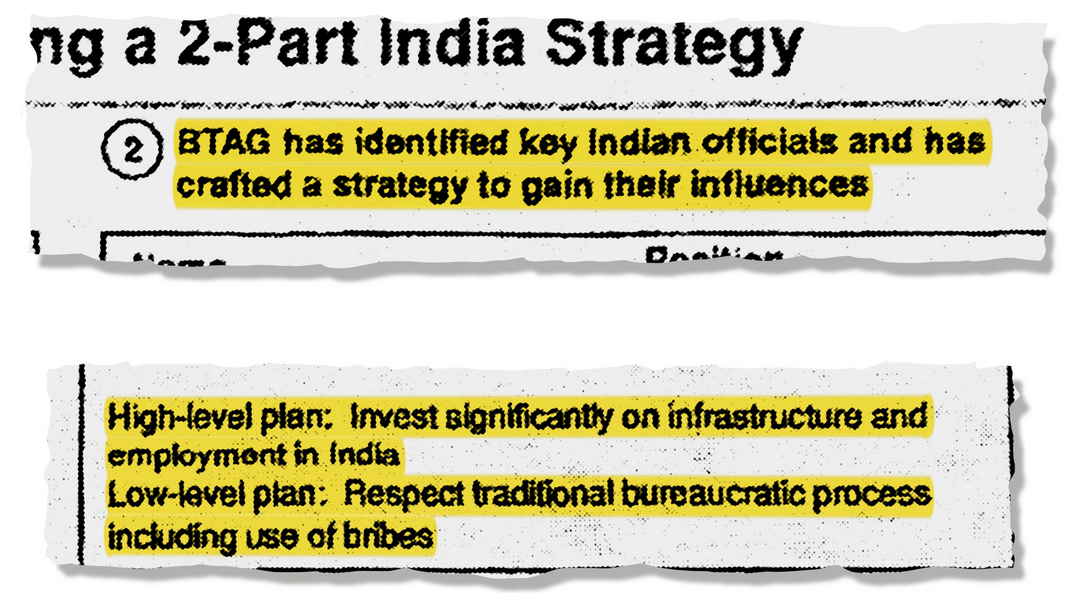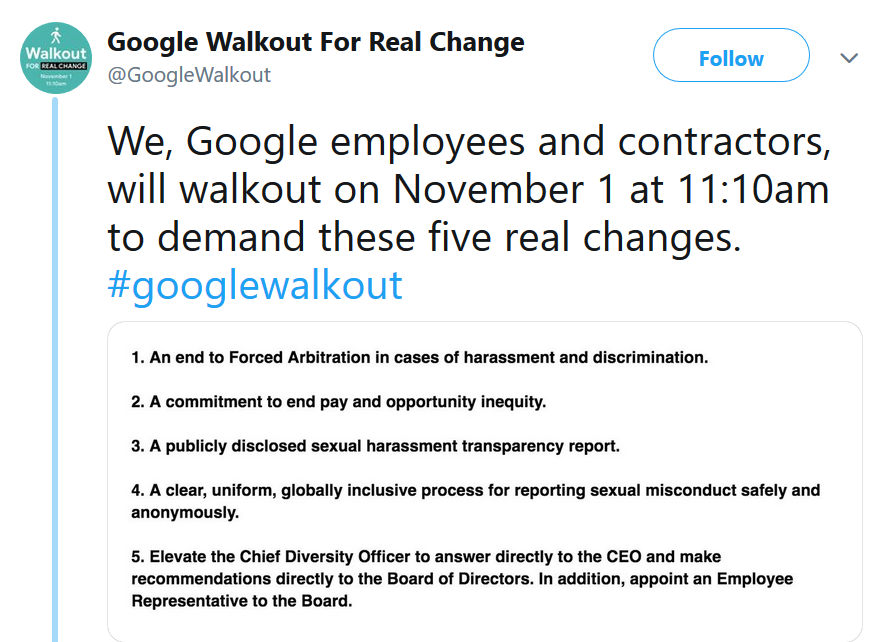Following Google employee walkouts and demands, both Google and Facebook have eliminated the requirement for employees to settle sexual harassment complaints internally. Tech companies Uber, Lyft, and Microsoft made the same change in the past couple of years.
Previously, all of these companies had clauses in their policies, which employees agree to when hired, that forced employees to give up their right to sue the company for sexual harassment.
Critics of forced arbitration say the policy puts victims at a disadvantage. Businesses are more likely to win cases in arbitration than in front of a judge. The internal practice also protects the company from public scrutiny and allows perpetrators to more easily get jobs in other companies, continuing the cycle of harassment.
Google CEO Sundar Pichai announced Google’s decision and other policy changes in an email to employees, which was posted on the company’s blog:
Hi everyone,
At Google we try hard to build a workplace that supports our employees and empowers them to do their best work. As CEO, I take this responsibility very seriously and I’m committed to making the changes we need to improve. Over the past few weeks Google’s leaders and I have heard your feedback and have been moved by the stories you’ve shared.
We recognize that we have not always gotten everything right in the past and we are sincerely sorry for that. It’s clear we need to make some changes.
Going forward, we will provide more transparency on how we handle concerns. We’ll give better support and care to the people who raise them. And we will double down on our commitment to be a representative, equitable, and respectful workplace.
Today, we’re announcing a comprehensive action plan to make progress. It’s detailed here and I encourage everyone to read it. Here are some of the key changes:
We will make arbitration optional for individual sexual harassment and sexual assault claims. Google has never required confidentiality in the arbitration process and arbitration still may be the best path for a number of reasons (e.g., personal privacy) but, we recognize that choice should be up to you.
We will provide more granularity around sexual harassment investigations and outcomes at the company as part of our Investigations Report.
We’re revamping the way we handle and look into your concerns in three ways: We’re overhauling our reporting channels by bringing them together on one dedicated site and including live support. We will enhance the processes we use to handle concerns—including the ability for Googlers to be accompanied by a support person. And we will offer extra care and resources for Googlers during and after the process. This includes extended counseling and career support,
We will update and expand our mandatory sexual harassment training. From now on if you don’t complete your training, you’ll receive a one-rating dock in Perf (editor's note: Perf is our performance review system).
We will recommit to our company-wide OKR around diversity, equity and inclusion again in 2019, focused on improving representation—through hiring, progression and retention—and creating a more inclusive culture for everyone. Our Chief Diversity Officer will continue to provide monthly progress updates to me and my leadership team.
I hope you’ll take the time to read the full range of actions we’re announcing today.
Thank you all for the feedback you’ve shared with us. This is an area where we need to continually make progress and are committed to doing so. We often hear from Googlers that the best part of working here is other Googlers. Even in difficult times, we are encouraged by the commitment of our colleagues to create a better workplace. That’s come through very strongly over the past few weeks.
-Sundar
Image source.
Discussion:
Analyze Pichai’s message: the audience, communication objectives, organization, writing style, etc. What works well, and what could be improved?
Overall, how well does the message address employees’ concerns?
Pichai mentions that privacy may be a reason employees choose the arbitration process, but the Times article says arbitration mostly protects the company’s privacy? Should Pichai have omitted this line?
What, if any, downsides do you see of Google responding to employees’ demands in this way?




















